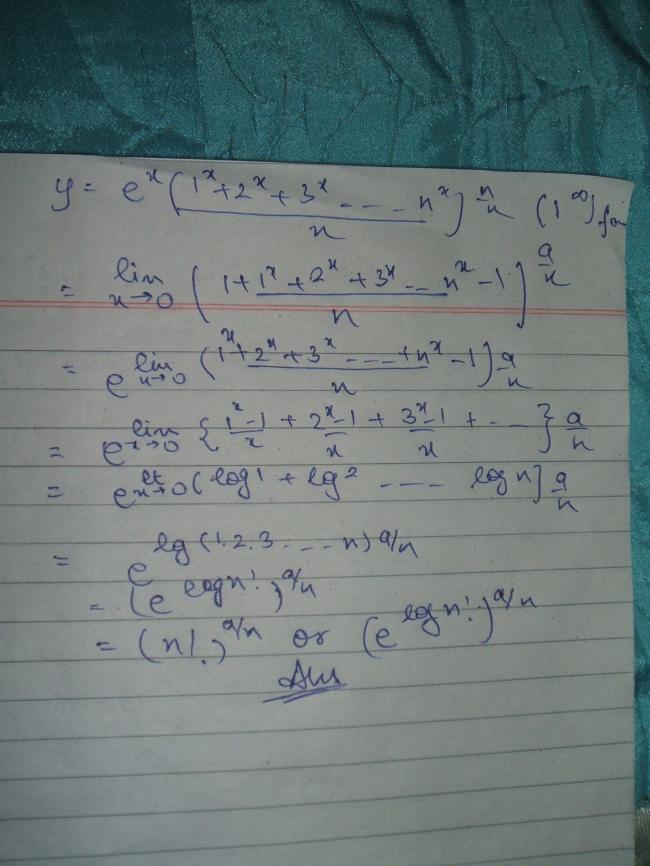manipal made a mistake in d first step........and his 'a' is n...
Lt { ex+(2e)x+(3e)x+...+(ne)x}n/x
x→0--------------------------------------
{n}n/x
a) n!
b) n!en
c)n+logen!
d)en
-
UP 0 DOWN 0 0 27

27 Answers
k taking ex common out ........we get
en{(1x+2x+...)/n}n/x
by takin 1∞ wala formula
ene{(1x+2x+...)/n-1}n/x
enelogn! (check out mainpals method)
enn!
shud i type my solution again?????? im hundred percent sure i hav got d rite answer........k w8 ill type again even if it takes forever ....(hehe just kiddin)
@manipal bhai mai question pe shaq nahi kar raha!! (I am not doubtin gthe quesiton!)
there is a mstake in taking x->0-
that is when you are taking the sum as 1+1+1+...
there is a x in the denominator!
and difference fo 2 terms that tend to infinity is not zero!
sir i used ax-1/x = logx
haaan i made a mistake
but the concept is perfect !!!!!!!!!!
jus a min....
i'll upload ma total workin
**deleted after getting reviewed..... LOL
I did not understand your log ..
how did u take it
where did the summation go!?
sum1 pl. help abhirup n myself decipher wer we hav gone wrong [2]
or does the question hav multiple ans [11] LOL [4]
man typing is confusing.........ill tell d method.........i did exactly wat manipal did .......by removing his small mistakes.......
en((1x+2x....)/n)n/x
ene(((1x+2x...)/n)-1)n/x
enelogn! ........(using manipals method)
tapan.....i did the same .......getting ...en...[2]
me too gettin e^n
take log on both sides...
apply limits :
logy = n/x(loge^x) + n/x(logn)-n/x(logn)
logy = n;
y = e^n
